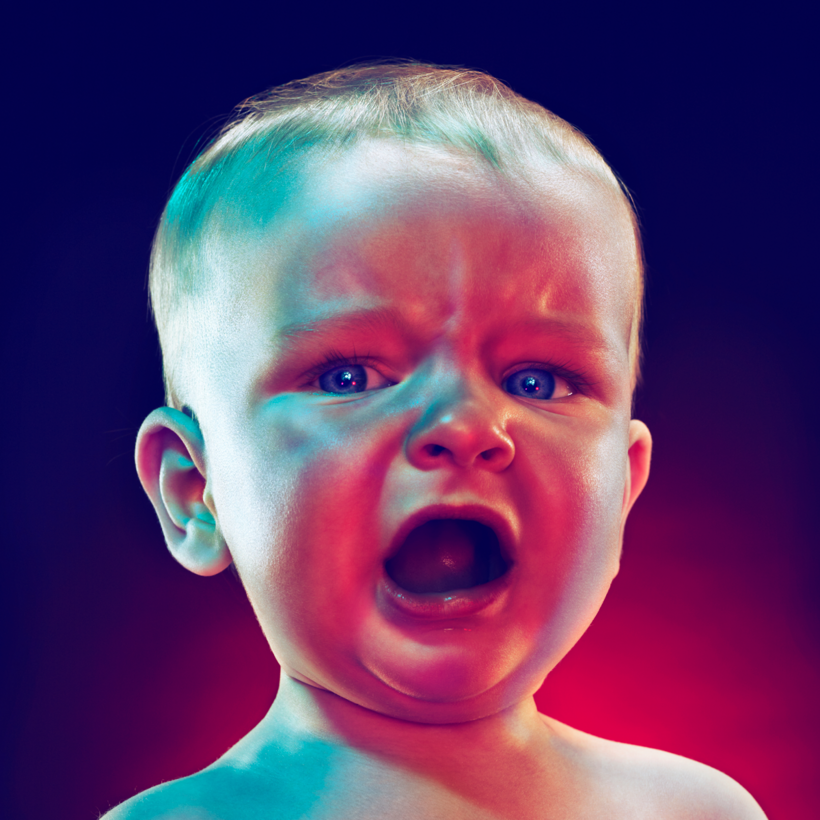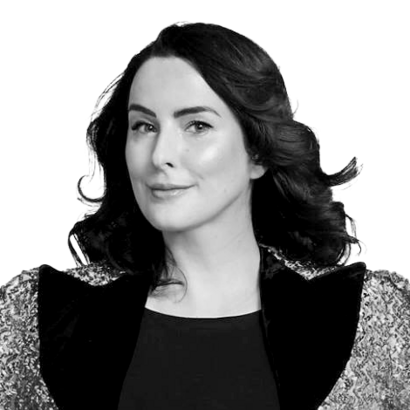Last night, I dreamt I had a baby—not a fantasy I have experienced often during my 52 years. It was rather a nice baby: a warm, soft, slightly downy bundle, an illusion not unrelated to the fact that I was sleeping with my whippet. I was enjoying this unexpected new addition, until I moved awkwardly and its head flew off. And that is about as profound as my thoughts about motherhood have ever been: a difficult job, which I wouldn’t be terribly good at, the absence of which allows me a more compelling—and less perilous—existence.
Sixty years after the introduction of the contraceptive pill, the population of England and Wales is spawning a mere 605,479 offspring a year—the lowest number in two decades within an overall downward plunge. And yet the more parenthood fails to inspire us personally, the more society bows down before motherhood’s milky shrine.
Those women who are prepared to breed are fêted, fetishized and followed. From the Princess of Wales, with her heir and spares, to influencer mompreneurs Stacey Solomon, Rochelle Humes and Binky Felstead, every choice is analyzed, every nurturing nuance examined. Motherhood has become such an all-encompassing social obsession, it must be celebrated across spiraling sub-tribes: helicopter, crunchy, brick wall, almond, attached, backbone, free range, silky and gentle; plus a bestiary of feral designations, including tiger, dragon, dolphin, elephant, hummingbird and jellyfish.
By way of example, look no further than the former prime minister’s wife, Carrie Johnson. Previously satirized as “Carrie Antoinette” for her overweening political ambition, she has found an outlet for her aspirations now in weaning her young. Downing Street’s former First Lady has repackaged herself as an Instagram yummy mummy: basic, barefoot and pregnant.
We are as bombarded by celebrity nippers as we are nepo babies. There are tales about male parental reluctance, imploding biological clocks, egg-freezing, IVF and surrogacy. And then we have the #menomums.
Take supermodel Naomi Campbell, 53, greeting the arrival of her second baby in June with the manifesto, “It’s never too late to become a mother,” or Oscar-winner Hilary Swank, then 48, Insta-announcing the birth of twins last spring: “Posting from pure Heaven.”
Doctors have labeled this phenomenon the Janet Jackson effect, after the singer gave birth aged 50 in 2017. Within my own circle, it is alluded to as a “Serpentine swaddle,” after the gallery’s former director, Dame Julia Peyton-Jones, embraced parenthood aged 64. When Victoria Coren Mitchell, 51, and 49-year-old Tana Ramsay produced newborns in November, it went almost unremarked upon. So omnipresent is the assumption that even older broads yearn to breed that single poster girl Bridget Jones turned midlife mum in her most recent outing, Bridget Jones’s Baby. A sequel is promised. Presumably Bridge, now in her seventh decade, will knock out sextuplets.
Take Naomi Campbell, 53, greeting the arrival of her second baby with the manifesto, “It’s never too late to become a mother.”
In the decades since the pill freed us from the notion of biology as destiny, feminism has brought women unprecedented political, professional and personal progress. And yet a Martian landing in 2024 might assume that female fulfillment continues to manifest in fetal form. Amid all this deafening cultural noise—this baby-crazy Babel—the only time we hear from childless women is in heart-wrenching stories of miscarriage, lost opportunity and regret.
I do not underestimate the misery of those who fall into this camp. However, I am not one of them, nor are the legions of remarkably happy, nipperless women I encounter. I say encounter, because the child-free get out more, have the opportunity to do things, to engage.
My life is my own, rather than coming second. As a parent, one is forever attempting to foster culture, brainpower and hinterland in the young. I get to be my own child, expand my own horizons. Among women of my age with degrees, the figure for childlessness rises to 43 percent. People talk as if this were a problem, a perversion, when it is our immense privilege. My education and the independence it granted made me who I am—and I don’t intend either to stop.
My mother pals, their charges quitting the nest, are asking themselves where the past 20 years went, frequently unsatisfied by the answer. Back in 2009, social scientist Dr. Nattavudh Powdthavee argued that the theory that having children yields happiness is a “focusing illusion.” Instead, there exists “almost zero association” between child raising and contentment. Parents may cherish milestones such as a first word or infant totter, but such epiphanies fail to be outweighed by the relentless drudgery.
Despite Nineties “new men” morphing into today’s woke wunderkinds, it is mothers who bear the brunt of such menial self-abasement—”having it all” turning out to be doing it all dressed up in fancier pants. I’ve lost count of the friends living as effective single mothers because their male partners were unwilling to muck in with actual or emotional labor. “I hate him,” observes one. “Respect died when I realized he wanted to sleep with a feminist when single, yet have his children raised by some 50s anachronism.” Midlife divorce figures come as no surprise.
In contrast, I not only like, but love, my partner, met aged 43 (he was 40) with no baby-making machinations at play. Terence and I get to spend time not solely devoted to domestic transaction, become intrigued by the other’s interests, talk. “Good God,” cried a colleague recently, “you actually impress each other.” Naturally, after nine years, five of cohabitation, there are disputes, but nothing festering, no bombs primed to go off. I don’t have to wonder what we’ll “do together” in our future—this future will be an extension of today.
“Having it all” turning out to be doing it all dressed up in fancier pants.
Unlike my maternal allies, I know how my past two decades have been spent: work, to be sure—and let’s not dismiss that. I adore my career, and can’t quite believe my luck to have stumbled across something so engrossing. I tire of bores droning, “No one ever says, ‘I wish I worked more,’ on their deathbed.” Legions of thwarted mothers may well. A few years ago, I took part in an event at which I was asked by a 22-year-old audience member where all the older women were in her office. “I’ll tell you,” I retorted, “because these are the geniuses I was with at university. They’re at home singing ‘The Wheels on the Bus,’ bored out of their skulls.” And that was pre-lockdown, before the shit really hit the maternal fan. I want my deathbed statement to be, “F***, my job was a joy.”
Beyond work, I’ve also been allowed to think, read, look, travel to fascinating places, consume incredible food, meet the world’s most compelling people, and wallow in sex, no drugs and rock ’n’ roll giving way to opera. I have my life-enhancingly frivolous infatuations: clothes, makeup, scent, baubles, bangles and beads.
But I also relish more intellectual pursuits: art, literature, history. Our last holiday was a geek-fest investigation of prehistoric and mid to late Bronze Age Sardinia. I have explored Troy, Mycenae and the palace that may or may not have contained the Minotaur, and my life would feel unlived without this.
It took me a long time to work out who I am and now I get to be her, while allowing for constant reinvention. I think of this as “selfed,” in the sense of an identity embraced. It certainly isn’t selfish, as my mother—a mum of five who maintained she hated every second—informed me childless women could only be, while also deeming us wise.
In fact, I am considerably more socially involved than if my time were taken up by head lice and scabby knees. Naomi Gerstel and Natalia Sarkisian published a paper in 2006 positing that married couples spend less time with friends and family than the single, being less likely to provide others with support. They referred to these as “greedy marriages.” Such is the tunnel vision necessitated by contemporary child raising that cynics might inquire, “Is there any other sort?”
I have endeavored to give my parents good deaths, be a worthy sibling and spectacular aunt. Friendship and forms of community have been able to play as important a role as family, and I’ve had time to develop their skills. My life is full of people of all ages, the young included, individuals with whom I share passions, if not a blood bond.
Mother friends who used metaphors of terrorism, madness and satanic possession to describe their relationships with their younger charges remain embroiled. Only, these days, their preoccupations are their progeny’s mental health and economic precariousness. Many stalk their brood on social media, still subsumed in parenting’s pall. They fantasize about getting their lives “back,” the timing for this unclear.
It took me a long time to work out who I am and now I get to be her.
At 52, I’ve got my life—having never been forced to surrender it—and it’s the one I want to lead. When it isn’t, we can fix it. Ultimately, wonderfully, Terence and I are free. We could up sticks and move career, country, continent; skate up the Volga, clamber up Kilimanjaro, or simply continue to exist in our blissfully selfed state. When people—women—tell me our situation is enviable, I cannot but agree.
And yet—inspired by the #menomaternity movement—people haven’t stopped suggesting I “knock one out.” Indeed, it’s a louder refrain than during my more flamboyantly fertile years. Taxi drivers, maître d’s, my cobbler—no one can get enough of my prospective fiftysomething bump. Given my regular period pain, even close friends propose propagating on a monthly basis. This despite the fact that their own parental lives remain beset by angst.
“What about the implications?” older men ask, those for whom 70s fatherdom meant kissing bathed babies for an evening, before settling down with a drink. “What about the future of the nation, of the species?” they demand, as if this were a responsibility only my fallopian tubes must bear.
Am I an evangelist? No. Do I think there needs to be more positive discussion for girls and boys about childlessness as an option? Damn right. If it’s not quite the new normal, then it’s an alternative normal, one that can bring as much, if not more, fulfillment—for women, not least. And if, as a society, we are perturbed by this, then we need to create a situation in which motherhood becomes more appealing. When the pill hit Britain, the question might have been, “Why not have children?” Today, the issue is, “Why?” Despite the procreative propaganda, for me and many women, the answer remains unclear.
Hannah Betts is a features writer and columnist at The Times of London and The Daily Telegraph




